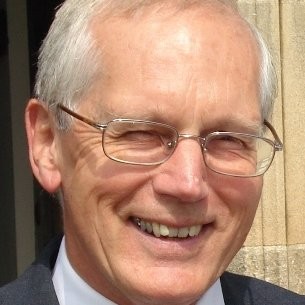Eleven million children died last year, mostly in the developing world from perinatal causes and infections such as pneumonia, malaria, diarrhoea and HIV. Malnutrition was an underlying factor in more than half these deaths. Many millions more had disability or impaired child development and an unrecognised number of children suffered from child abuse and exploitative labour. These unacceptable facts challenge us all, yet doctors often ask, 'What can I do about it?' These days we all have job plans, holding us accountable to trusts or universities, with clearly identifiable tasks. We can use the same approach to set personal priorities for making a difference to international child health.
Make a social and political diagnosis
Poverty underlies such high mortality rates but it comes in different forms:
- Economic poverty is multifactorial – corruption, theft and military expenditure; political discord and war; debt, drought and floods; unemployment, and poor salaries for medical staff leading to medical migration.
- Social poverty is in part due to the globalisation of youth culture, leading to substance abuse along with family stress and dysfunction.
- Spiritual poverty – children may not feel God's love. Church outreach, with its rallies and long services, often focuses on adults; few churches are child friendly. Furthermore, children find it difficult to experience God's love if they are hungry, sick, exploited, grieving or abused. We can become more informed through organisations such as Tear Fund, Save the Children and World Vision.
Why is health care inadequate?
- Inappropriate policies – child and parent healthcare may be charged for, as demanded by international funding organisations' economists.
- Medical migration – developing world nurses and doctors are migrating to the developed world; for example, from Zambia and Malawi to the UK.
- Absence of clear treatment protocols – examples include lack of effective regimes for treatment of paediatric AIDS, severe malnutrition and perinatal infection. Inadequately trained staff – shortage of lecturers and inadequate learning materials for students.
- Out of stock – supplies of basic drugs often run out.
- Uninvolved communities – doctors may not encourage opportunities for community groups to assist them in improving home care.
What can we do?
As doctors in the developed world, we need to stay updated with the current situation. Things change fast and there are many websites bringing new information. Decide whether you're going to be a player rather than a spectator. Make a self-appraisal of the skills you have or could develop. Then aim to use those skills practically and effectively in a variety of ways, both in the UK and overseas. There are several ways that Christian doctors might respond:
Tackle poverty and oppression
'…loose the chains of injustice, and untie the cords of the yoke…set the oppressed free…share your food with the hungry…and your healing will quickly appear.' [2] The impact of individual doctors, other individuals and organisations who supported the Make Poverty History Campaign was striking; the pressure on governments and donors resulted in some remarkable changes.[3] Several African countries have had a large chunk of their international debt cancelled, providing more money for health and education.
Get involved while things are still bad
'If you wait until the wind and weather are just right you will never sow anything.'[4] Too many doctors think or say, 'Poor Africa! Will it ever get better? 'But there are many very impressive examples of individuals making a difference through providing clinical care, training and research. Increasing numbers of UK paediatricians now have short or long term involvement with overseas training programmes. It is often best to build a relationship with a teaching, district or church based hospital and to make a commitment over a number of years. However, opportunities for short term work also abound.
The political scenes change fast and governments which nationalised church hospitals are now welcoming expatriate colleagues to work in church based health services. There are also exciting opportunities to develop careers in paediatric research in the fields of infection, nutrition, HIV and health service provision. Strong research collaborations between universities in developing countries and the UK support research training fellowships for bright applicants who work in closely supervised environments. High quality child health research is being funded by, amongst other agencies, the Wellcome Trust and the Medical Research Council (MRC).
Provide passionate paediatrics
Matthew's gospel tells us that Jesus made time for children. When his disciples were rebuking those who brought children to Jesus, our Lord instead gathered these little people to him, put his hands on them and blessed them. [5] We need to develop a passion for paediatric care: Jesus' disciples regarded children as an irritant or a burden, as many people still do today. But Jesus himself was deeply concerned about children and he made himself available to them – this was radically different from the prevalent attitude of his culture.
Organisations such as VIVA work with other Christian organisations, helping them to put 'Children at Risk' higher on their agendas. There are key researchers documenting clinical problems and devising new treatment regimes. Despite appalling lack of resources, child survival and development has been improved in many countries, without just waiting for things to happen. Even the World Bank is changing its attitude. [6] Their policy used to be that primary emphasis should be on economic recovery, and that health would then improve as a result. There hasn't been much evidence to support this policy over the last 20 years, so recently their policy changed to being one of 'Investing in Child Nutrition and Health' as the way to get countries out of poverty. Health programmes will be supported more strongly in the future. The challenge now is one of recruiting doctors to take up these new opportunities in paediatrics and child health.
Share our time
Jesus told the Parable of the Rich Young Man, a story about a man who thought he was doing enough.[7] Much of our time in the UK is spent checking that we are fulfilling our job description or ensuring that we achieve the highest possible Research Assessment Exercise (RAE) score. That is fine, as it is what we are paid to do, but we are not contracted to work for our employers 24 hours a day. Jesus lived in an agricultural community where it was possible to spend all of the day (and even some of the night) ploughing, fertilising and weeding. We too live in an environment where it is possible to spend all day and much of the night pursuing employment related activities. But this parable encourages us to make time for things outside our contracted hours.
There are many remarkable examples: after only one year in Africa, a young paediatrician and her husband managed to set up a fund raising charity for the government hospital where she worked; some medics take unpaid leave to teach and supervise research at a new medical school; and others go out of their way to train overseas doctors during their time in the UK. Jesus called this putting the last first. [8]
Expect no financial reward
Jesus also gave us the Parable of the Workers in the Vineyard. [9] The hired workers were, expectedly, upset when those who worked longest got the same amount of money as those who had worked for fewer hours. Jesus says that he will reward as he wishes. We live in a competitive professional world where everything we do has to be justified; yet the question remains, 'What do we do with our time after we have fulfilled our contractual obligations?' Jesus asks us to respond radically.
A young paediatrician who recently worked overseas on the RCPCH/VSO scheme [10] described how he took a child with cerebral palsy out of the hospital cot where she had been for 15 years, to show her the sun and the world that it shines upon. He then helped her get to school and, in doing so, received quite a bit of ridicule from other hospital staff. But the hospital's superintendent wrote on this paediatrician's reference that he 'had the courage to assist the weakest'. Is Jesus asking us to find space in our lives for activities which do not focus on our salary, grade or RAE score? Improving international child health, by one means or another, is something that every UK doctor can do.
Useful websites
- Tropical Health and Education Trust (THET) www.thet.org
- Medical Research Council www.mrc.ac.uk
- Save the Children UK www.savethechildren.org.uk
- International Information Support Centre www.asksource.info
- Tear Fund www.tearfund.org
- UNICEF www.unicef.org
- VIVA Network www.viva.org
- Wellcome Trust www.wellcome.ac.uk
- WHO www.who.int
- World Bank www.worldbank.org
































